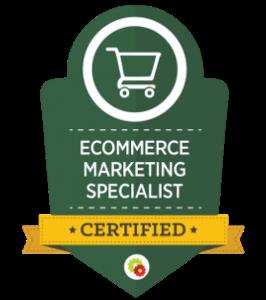
Social media has become an indispensable tool for businesses in today’s digital age. You need it to connect with your target audience, boost your brand’s visibility, and drive sales.
But most businesses and even beginner marketers don’t fully understand how to use social media for ecommerce.
If you’re one of them, we’ve got you covered.
Whether you’re new to social media or looking to enhance your existing social media strategy for ecommerce, this blog is here to help.
We’ve compiled ten effective social media ecommerce strategies that can propel your brand to new heights. So, grab your favorite snack, sit back, and get ready to unlock the potential of social media for your ecommerce business.
Let’s get started!
What is Ecommerce Social Media Marketing?
Ecommerce social media marketing refers to the strategic use of social media platforms to promote, sell, engage, and support customers in the context of ecommerce.
Some of the most common ways brands use social media for ecommerce marketing include:
- Setting up online shops and selling products directly on social platforms (this is known as social commerce)
- Promoting brands on social media accounts and driving traffic to online stores (ecommerce websites)
- Replying to customer queries and engaging with potential customers to build trust
- Offering customer support before and after sales
- Using customer insights and data to revamp marketing strategies
But why do brands do all of this? What’s the benefit of having a social media presence? Let’s try to understand.

What Are the Benefits of Using Social Media for Ecommerce?
Social media is a game-changer for ecommerce businesses, offering a wide array of benefits, such as:
- Increasing Website Traffic & Generating Leads
- To Build Brand Awareness
- Building Customer Loyalty & Trust
- Acquiring New Customers
- Creating Opportunities for User-Generated Content (UGC)
- Improving Customer Service
- Engaging with Target Audiences in Real-Time
- Enhancing SEO Efforts & Search Rankings
Fact: Did you know that online stores leveraging social media networks drive 32% more sales than those that don’t? (WPForms)
This stat alone should get you excited about crafting an effective social media strategy for your ecommerce business!
So, now that you know what ecommerce social media marketing is and the benefits it offers let’s look at how to use it.
10 Powerful Social Media Ecommerce Strategies
Here are ten powerful social media ecommerce strategies you can employ to drive sales for your brand:
1. Set Clear Goals
Setting clear and measurable goals should be the first step in your social media ecommerce strategy. Goals will provide you with direction, help measure success, and hold you accountable.
But what kind of goals should you set?
The most common ones can be:
- Drive Sales on Your Social Profile
- Drive Traffic to Your Ecommerce Store
- Get More Customer Queries/Leads
Other than these, you might want people to subscribe to your newsletter or loyalty programs.
These and other similar targets could all be part of your e-commerce social media goals.
But the important thing here is to decide whether you want to do social selling, social commerce, or social media ecommerce marketing.

Social Selling vs. Social Commerce vs. Social Media Ecommerce: What’s the Difference?
Social selling is the practice of using social media to attract your target audience, engage with them, and nurture your relationship with them.
You don’t actually sell them anything but make them remember and trust your brand or business. So, when they’re in the buying mode, they know who they’d be calling – that’s social selling!
Social commerce involves marketing and selling your product (or service) directly on social media platforms.
Social media users can stay on their social profiles, read about the product/service, and buy it — all of this without leaving the platform.
Facebook, TikTok, Instagram Shops and Pinterest Product Pins are typical examples of social commerce being executed.
Social media ecommerce marketing is what we’re studying in the blog right now: marketing your product, generating leads, and helping future prospects on social media but then driving them to your online stores.
So, first, decide what it’s gonna be for you and then move forward.
2. Build Your Social Media Strategy for Ecommerce
After you’ve set your goals, build a comprehensive ecommerce social media marketing strategy that helps you achieve them.
Your strategy should include the following:
Define Your Target Audiences
- Who are your potential customers?
- Are they millennials or Gen Z?
- What do they like and dislike?
- What interests them?
These insights will help you create relevant content, campaigns, and offers.

Become A Certified E-Commerce Marketing Master
The Industry’s Most Comprehensive E-Commerce Marketing Certification For The Modern Marketer. Turn Products Into Profit, Browsers Into Buyers, & Past Purchasers Into Life-Long Customers.
Create Relevant Content
- Research the type of content that resonates best with your target audiences — blogs, videos, images?
- Study your target market and see what kind of content attracts them.
- Use this knowledge to create content that will help you engage with them.
But before you can do any of this, there’s an even more important decision to make: “What platforms should you choose?”
3. Choose Your Preferred Social Media Channels
Which social media platforms should your business have an active presence on?
This largely depends on who you’re targeting. For example, Gen Zee tends to be more active on TikTok and Instagram, while millennials prefer Facebook and Twitter.
But don’t depend on our or somebody else’s opinion. Study your target audience and see what the data suggests.
For instance, if your target audience primarily comprises women, it might be a good idea to have a Pinterest profile. Why? Because women make up 60% of all Pinterest users!
Similarly, you can study age demographic stats and see where your audience spends the most time and choose a platform accordingly.
Besides your target audience, also consider each platform’s features and ROI. It doesn’t make sense to invest heavily in a channel that won’t give you the desired results.
So, think carefully and choose wisely!
4. Optimize Your Profiles
Once you’ve chosen the platform(s), it’s time to optimize your profile.
Make sure that all your social media profiles have the necessary information about your brand and products, such as its logo, contact details, website URL, etc.

This will help customers get to know your business better and trust you more.
Also, don’t forget to do proper keyword research. It will help you figure out the best words to use in your descriptions and hashtags to use in your posts to get more people interested.
5. Have a “Mobile-First” Approach
Out of 4.48 billion social media users, 99% access the websites or apps through a mobile device – backlinko.
What does it tell you?
You must adapt your ecommerce strategy accordingly and make sure that all content looks great on small screens too.
Here are some tips to optimize your social media accounts:
- Invest in creating high-quality visuals that look great on small screens.
- Make sure your website is mobile responsive, and the checkout process is easy to complete.
- Utilize mobile advertising tools like Facebook Ads, Instagram Ads, etc.
- Use shorter hashtags and URLs to make them easier to tap or type on mobile keyboards.
- Use a clear call-to-action in your posts so that users can take action right away.
Important: Having a responsive and easy-to-navigate ecommerce website is super important – don’t sleep on it!
6. Employ Chatbots
Chatbots are like your brand’s trusty sidekick in the world of social media ecommerce!
Did you know that around 50% of people are totally on board with making a purchase through a website’s chatbot using conversational marketing? That’s right! These friendly virtual assistants can offer personalized and real-time assistance to your customers, making their shopping experience a breeze.
Need product recommendations? Chatbot’s got you covered!
Have a question about shipping? Chatbot’s got the answer!
By having chatbots as part of your social media ecommerce strategy, you can provide instant support, boost engagement, and, most importantly, drive those all-important sales.
So, why not harness the power of chatbots and make your customers’ journey even more enjoyable?
7. Leverage UGC (User-Generated Content)
UGC refers to content created by your customers, such as reviews, testimonials, photos, and videos featuring your products.
It’s one of the most powerful tools for driving engagement and boosting sales.
Why?
- It’s like having an army of brand advocates who are eager to spread the word about your offerings.
- UGC showcases real-life experiences and authentic customer interactions with your brand.
- It builds trust and credibility among your target audience as it comes from real customers.

Plus, it’s not just about showing off your products – it’s about making customers feel part of a community. It shows that you value their input and recognize their contribution to the brand.
So, why not include UGC in your social media ecommerce strategy?
Encourage your followers to post pictures with their purchases, use relevant hashtags, and provide incentives for doing so.
8. Publish Short-Form Content
Today, short-form content reigns supreme! With dwindling attention spans, social media users prefer watching short, 30sec-1min videos instead of reading text.
This is exactly what brands need to capitalize on and capture their audience’s interest quickly and effectively.
But what kind of short-form content can you create to engage your social media followers? Here are some ideas for short-form content:
- Tips & Tricks: Share bite-sized advice and hacks relevant to your industry.
- How-Tos: Break down complex processes into step-by-step guides.
- Behind the Scenes: Offer glimpses into your brand’s inner workings.
- Quick Product Demos: Showcase your products’ features and benefits in short videos.
- Inspiring Stories: Share stories that evoke emotions and inspire action.
Remember to keep your content visually appealing, concise, and shareable.
Try different formats like Reels, Stories, or TikTok-style videos to maximize engagement and captivate your audience instantly!
9. Collaborate with Influencers
Did you know that a whopping 72% of Gen Z and Millennials are avid followers of influencers on social media? That’s right!
Influencer marketing has taken the digital world by storm, and it’s an incredible opportunity for ecommerce brands like yours to connect with your target audience in a meaningful way.
Here’s how you can incorporate influencer marketing into your ecommerce marketing plan:
- Find Relevant Influencers: Look for influencers who align with your brand values and target audience.
- Set Clear Objectives: Define your goals for the influencer campaign to guide your strategy.
- Prioritize Authenticity: Encourage influencers to create genuine content that resonates with their audience.
- Foster Creative Collaboration: Involve influencers in the creative process to showcase your products in their unique style.
- Track Performance: Measure the success of your campaigns using tracking tools and unique discount codes.
- Consider Long-term Partnerships: Build strong relationships with influencers for ongoing brand integration and audience connection.

By collaborating with influencers, you can amplify your brand’s reach, enhance credibility, and drive meaningful results in the competitive ecommerce landscape.
10 . Track Progress & Evolve
Tracking and analyzing the results of your social media ecommerce strategies is vital for ongoing success.
Analytics tools can give you valuable insights into audience demographics, reach, and engagement.
Platforms like Facebook, Instagram, and Twitter provide built-in analytics dashboards to assess post performance. Use them to understand audience behavior and analyze what’s working for you.
Similarly, monitoring ad performance is especially important if you’re selling directly on social media. Tracking metrics such as click-through rates, conversion rates, and sales will help you assess the effectiveness of your ads and make data-driven decisions.
Besides analyzing your social media posts, keep a close on your website analytics (Google Analytics) to measure the impact of your social media campaigns. See which platform gets you the most traffic and which one’s not doing the job.

Become A Certified E-Commerce Marketing Master
The Industry’s Most Comprehensive E-Commerce Marketing Certification For The Modern Marketer. Turn Products Into Profit, Browsers Into Buyers, & Past Purchasers Into Life-Long Customers.
But remember, tracking progress isn’t just about numbers; it’s about understanding your audience and their preferences.
Use the data to identify patterns, trends, and customer behaviors that can shape your future strategies. Adapt and evolve your approach based on these insights to ensure continued success in the dynamic world of social media.
Supercharge Your Ecommerce Journey with Social Media
So, this is it — use this 10-step strategy to build an effective ecommerce marketing plan on social media and drive real results for your brand.
If you find tracking progress and analyzing data challenging, consider completing Digital Marketer’s Social Media Certificate.
This short but in-depth program can help you master the art of creating an effective social media strategy for ecommerce to drive engagement and revenue for your business.
Sounds like too much work? Mongoose Media is an award-winning, modern digital marketing agency. They can develop & execute effective strategies to maximize your brand’s online presence and drive sales.
Don’t hesitate to reach out and take your ecommerce business to new heights!
[TAG8]The post 10 Strategies to Mastering Social Media for Ecommerce appeared first on DigitalMarketer.
Frequently Asked Questions
Motivation is important for entrepreneurs.
When we feel lost or stuck, motivation is what propels us forward. It allows us to face our fears with courage and make tough decisions.
Motivation is also key to success. Lack of motivation can cause us to become lazy, unmotivated or unproductive, ultimately leading to our failure.
To unlock your potential, you must find ways to motivate. It is important to find a way that motivates you throughout the day.
It is like a muscle. The more you work it, the stronger it will become. It starts to weaken and atrophy if it isn’t exercised.
Most of the most successful entrepreneurs are selfmotivated. They set goals, plan how to achieve them, and follow through.
However, there will be times when motivation is needed. These are three easy steps that can help you stay motivated.
Step 1) Get inspired. Find an example of someone who inspires. Someone who has already achieved what you want.
Step 2. Set small goals. Be realistic about each goal. The next step is more important than the end result. By breaking big goals down into smaller ones, you'll be able to reach them faster.
Step 3: Reward your self. When you achieve your goals, reward yourself. You don't need to get something in return; you could just be enjoying the time spent doing something.
Motivation is a choice. Choose to be happy, choose to be successful, choose to live life abundantly.
If you're ready to transform your life, get started today. Start by deciding to change. Then take action. You can start living the life of your dreams now.
What is it that makes an entrepreneur successful?
There are two types if entrepreneurs: those who make money or those who work part-time.
The difference is in how they approach business. The difference between them is how they approach their business. Those who make more money are focused on making more money, while those who make more time are more focused on making more.
Those who make money are driven by the desire for financial freedom. Their goal is becoming and staying rich.
They are motivated by greed and fear. They are motivated by fear and greed, but they don't think about the long-term.
This type of person is commonly referred to by the term "hustler". They have a focus on the bottom and are able to find ways of increasing revenue without regard to quality.
Others make it a full-time job. These entrepreneurs are passionate about their work. They are passionate about creating something meaningful that lasts forever.
Their motivation is altruistic. They are driven to achieve great things. They are passionate about creating services and products that make a difference.
These people are often called dreamers. They are driven to achieve their goals through vision and inspiration. They know that hard work, perseverance, dedication and determination are key to success.
These entrepreneurs are also creative. These entrepreneurs are always searching for new opportunities.
They thrive in the unknown. This is why they are willing to spend hours researching an area of interest. They enjoy learning new things and are open-minded to exploring new ideas.
It is also why they are adaptable to changing situations. They won't mind doing anything to win, even if it means getting dirty. They won't accept mediocrity.
Which type of entrepreneur is it? Are you driven to make it big or do you want to find meaning in life?
Congratulations to those who answered yes to both of these questions! You are a successful businessman.
I have known many successful entrepreneurs over the years. One thing that unites them all is passion.
Entrepreneurs are not defined solely by their monetary wealth. They leave behind an impact that defines them.
For example, Steve Jobs was known for his philanthropic efforts but wasn't rich. He did not own a home until his 40s.
His ability create products that changed the course of history was his greatest source of wealth. This is what defines him.
It is not about accumulating wealth. It's not about building empires and amassing power.
Your job is building relationships with customers or partners. To build trust. To make others successful.
To make an impact. That's your legacy. This is your legacy, not your bank accounts.
If you are interested in building a legacy that is meaningful, let's get started.
Social Media University will teach you how to generate passive income online. We'll teach you how to market your business, so it grows automatically.
What are the types of entrepreneur motivations?
Entrepreneurs can choose from three types of motivation. Each type is unique and has its strengths, as well as its weaknesses.
External motivation is the most common. It's where someone wants to make more money. This motivation comes from financial concerns.
External motivation is driven mostly by personal interest, ambition and desire. This type of motivation leads to people who are extremely goal-oriented.
It is rare to find internal motivation. Internal motivation is far more rare than wealth. Individuals with it do not seek to be wealthy. Instead, these individuals pursue other goals, like self-development, fulfillment and service.
People with inner motivation are often called "passionate" when they find satisfaction in what they do.
Intuition is the most common type of motivation. Individuals who find enjoyment and satisfaction in working towards a specific goal are called intrinsic motivation.
Motivation from within is stronger than external motivation.
Inner motivation is a result of the inner self. It is based on the belief that people have certain talents and abilities. These talents and abilities allow them to accomplish things that no one else could possibly do.
It is satisfying and fulfilling to realize our potential and talents. We feel like we are doing important work.
We are happy when we have intrinsic motivation. It is knowing we can do anything we put our mind to. This makes us happy.
This feeling of accomplishment is what keeps us going through tough times.
You might even find it boring if you don’t enjoy what your doing.
Click here to read more about entrepreneur motivation.
What are 6 essential questions that entrepreneurs must ask to be motivated?
For any business, motivation is key. Without motivation, you won't make it out of bed each day. Without motivation, you'll struggle to finish projects. You can't reach your goals without motivation. How can we find our motivation?
You may wonder, "What motivates my mind?" But the answer might surprise you. You may have been asking yourself the same question for years. You are missing one of the greatest rewards of life--the chance to discover your motivation.
Discovering why you are there is the best motivation. It's then that you will finally understand what drives and motivates you. You will find your purpose clearer and more meaningful. What makes you care? This will help you stay motivated.
Finding your motivation starts with looking within. These are some questions to ask yourself:
- What is my passion?
- What makes my heart beat so fast?
- What's the thing that makes me happy?
- What gives me butterflies?
- What makes you feel alive?
- What is it that makes you want to return to your project over and over again?
Once you have the answers, you can identify your true motivations.
Your motivation will help you get through those tough times. It will give strength when you need. It will help you work harder. It will push you to achieve success.
And if your like me, then you'll never stop trying to find out what your motivations are.
Take some time to reflect on what motivates you. You might be pleasantly surprised at what you uncover.
How can you motivate yourself to be an entrepreneur?
To motivate yourself, find someone who is also motivated to do what your goal is. Ask someone who has worked hard towards achieving his goals to tell you how he did it.
Ask for advice, listen, learn and most importantly follow it. Look up successful people to emulate.
You can do whatever it takes to be that person. Learn from them. Take their notes. Follow their lead.
But above all keep pushing forward. Keep moving. Never stop learning. Never give up.
Never allow anyone to tell you that your abilities aren't possible. Never let anyone tell or suggest that there's no path.
You may fail, but that doesn't mean you've failed. Failure can make you stronger. To learn more. To push harder.
Failure is just another step along the road to success.
Get started today! Start today to move closer towards your dreams.
Are you still waiting?
How can entrepreneurs motivate staff?
Motivation can come in any form. It doesn't matter from where motivation comes, as long as it inspires people to take action. Motivation is vital for any business.
The more motivated an employee feels, the more likely he/she is to perform well. For a team that performs well, provide them with the tools they need to feel empowered.
You need to create an environment where they feel valued. It should be a place they can learn and grow. A place where they can freely share their ideas without fear of punishment.
Employees thrive in a company culture that supports them. It's how to keep your best employees happy, loyal, and productive.
To maintain a positive culture, you must reward the people who make it happen. This can include bonuses when goals are achieved, training opportunities, raising pay raises, and providing perks like insurance.
It is important to communicate clearly and provide direction. You must ensure that everyone understands the expectations and reasons for them.
Make sure you have written policies and procedures. It is important that you designate someone to ensure that your policies and procedures are being followed.
Communicate often, and that's the most important thing. Keep your team informed about what's going on in the organization. Inform your team about what's going on and what's coming up.
Communication is crucial, and it is important to look after your team. They will take great care of you.
Without a great relationship with your employees, you could lose a lot of money. Studies have shown that companies with high employee engagement score higher in productivity and profitability than those struggling to retain their top performers.
It's important for employees to recognize that not everyone wants to work at a similar pace. Some prefer working alone while others love to collaborate. You can motivate anyone in many different ways.
Some may be more inclined to accept recognition than others. Whatever works for you, ensure it aligns with the company's goals.
As the leader, you are responsible for setting the tone. Open-minded. Listen to your team. Don't forget to listen.
Statistics
- I shifted my motivational point from something huge (and undefined) to improve by just 1% each day. (carolroth.com)
- Our 10 years of research also shows that 75% of mentored entrepreneurs increased their revenue, and 82% of their businesses survived the first two years. (carolroth.com)
- Invest at least 30% managing those with authority over you and 15% managing your peers.” (americanexpress.com)
- “Life is 10% what happens to you and 90% how you react to it.” (oberlo.com)
- According to analysts, Johnson has high appeal in all four quadrants tracked at the multiplex: male, female, over-25 and under-25. (forbes.com)
External Links
twitter.com
entrepreneur.com
cnbc.com
- This is Jeff Bezos’s inspirational quote he keeps on his fridge
- Richard Branson is a billionaire. Here are my top ten tips for success
kabbage.com
How To
What are three things that keep entrepreneurs motivated and successful?
Entrepreneurs need to be motivated. There is no motivation without which there can be neither drive nor determination to succeed. What motivates you?
We are motivated by three things:
- We love our business
- Our mission/vision is bigger than ourselves
- We love to help others.
Find ways to tap these motivations to stay motivated. For example, when we love our business, we feel great pride and satisfaction when we do well. When we have a big vision, we feel more satisfied knowing that we are making a difference in the world. When we feel fulfilled when we help others, it is because we are giving back to society.
According to a University of Chicago Professor Emeritus Dr. John Cacioppo's research, the best way of motivating yourself is to concentrate on what you are passionate about. He states in his book "Loneliness" that caring about something is the best way to motivate yourself. This makes us more engaged and energized. It makes sense that when we care about something, we will be more passionate about doing it!
Did you miss our previous article...
https://consumernewsnetwork.com/technology-news/how-to-get-booked-as-a-guest-on-podcasts-and-get-staggering-results






